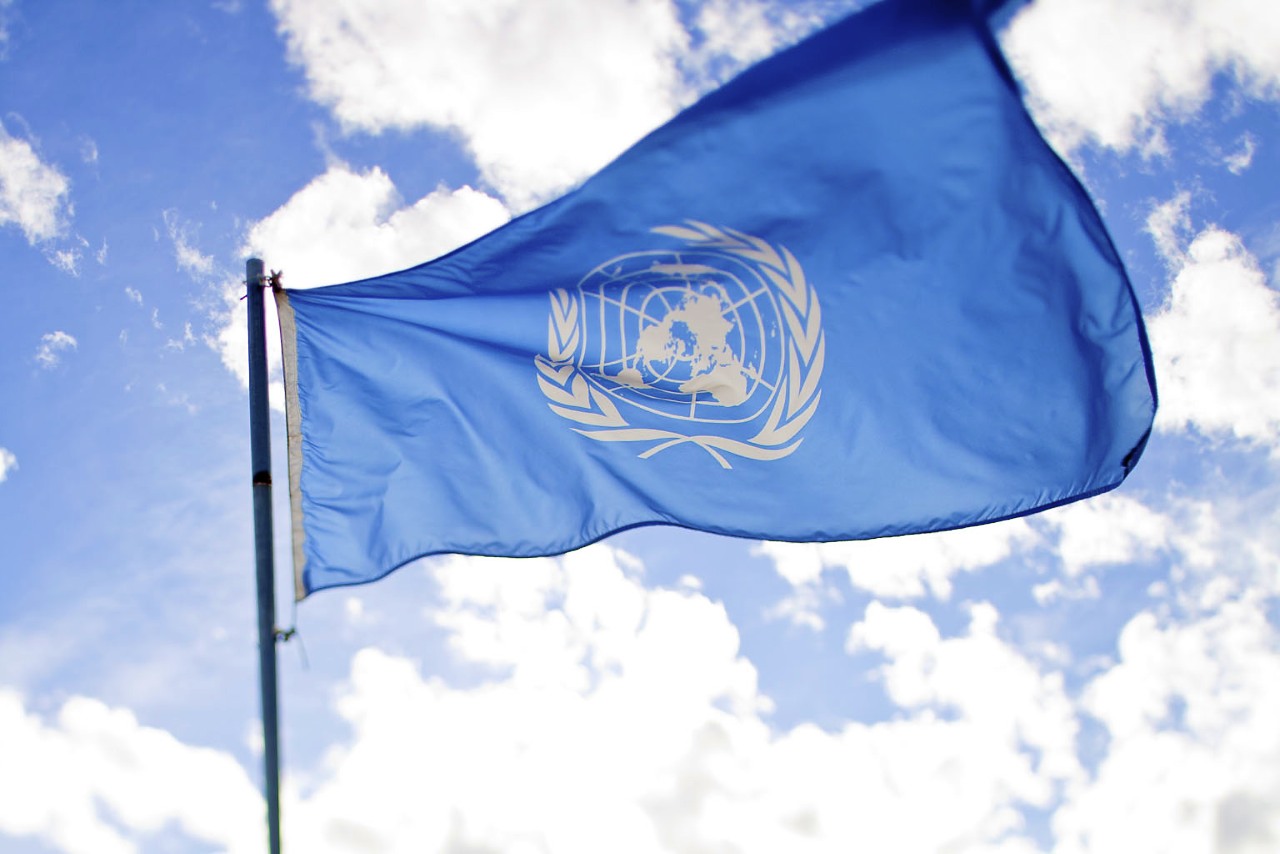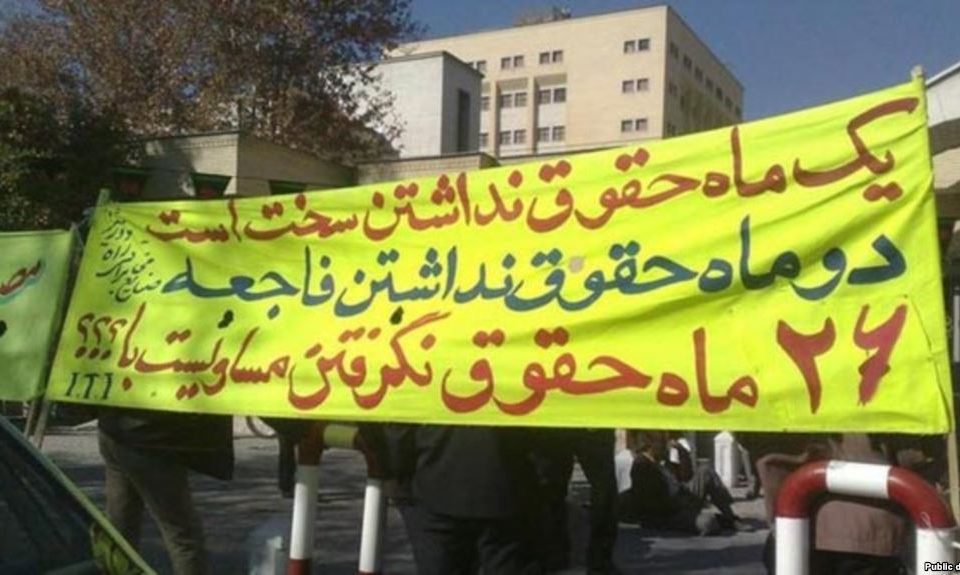
Summary of Findings from UN Report on Human Rights in Iran
March 10, 2012
Statement Against War
March 19, 2012In this issue of the weekly review, Arseh Sevom provides an overview of the economic situation as the New Year approaches and Asghar Farhadi’s call for the reinstatement of Iran’s House of Cinema. We join Amnesty International in celebrating the activism of Iran’s women and listen to their voices against war. We mark the release of the impressive report by Dr. Ahmad Shaheed, the UN Special Rapporteur on Human Rights in Iran, while noting the backdrop of harsh sentences for human rights defenders and journalists. In a disturbing development, the High Council for Cyberspace was appointed by Iran’s Supreme Leader and another publishing house has been forced to close its doors. We finish with tree plantings to mark Iran’s arbor day and a plea for the protection of the endangered Lorestani Salamander, which has been seen being sold along with goldfish for the Norooz display.
A New Year Greeted with Empty Pockets, Joy, and Trepidation
The celebration of Iranian New Year (Norooz), which falls at the moment of the Spring Equinox (5:14 am UTC or GMT, March 20), has managed to survive every political regime and every change of religion. It remains autonomous of state control and an example of “the configuration in which society stands apart from the state.” Its continuing celebration in Iran represents a requisite of a civil society (more about civil society here).
The fast approaching new year is causing a mixture of apprehension and excitement. This will be a difficult Norooz for many suffering from the bad economic situation in Iran where a combination of run-away inflation, poor economic management, and sanctions are really taking their toll. The impact of Western sanctions is becoming more manifest in the daily life. The Wall Street Journal reports:
“‘We have to keep going,’ says one merchant in a neighborhood shopping district. ‘People here are boiling, but don’t make a sound.’
“Iran’s economy has hit a rough patch, even by its own fitful performance standards. The most acute problem now is relentlessly rising prices—brought on in part by tightening sanctions, but also decades of economic mismanagement by Iran’s own government.
“The inflation rate, officially pegged at 20% annually, is probably more like 50%, according to Farhad Khorrami, an economist at Allameh-Tabatie University in Tehran. The most recent spur to prices has been a sharp fall in Iran’s currency, triggered largely by fears about the newest round of sanctions announced by the U.S. and Europe.
“The result for working-class Iranians like 40-year-old Reza, married with two daughters, has been struggle.”
(If you can’t access their site, you can read a portion of the article on Enduring America.)
Director of “A Separation” Calls for Reinstatement of Iran’s House of Cinema
Asghar Farhadi, the director of the award-winning film “A Separation,” returned to Iran where he was met by a joyful crowd.
Upon his return to Tehran on 10th of March, pointing to the few officials who had come to the airport to congratulate his success, Asghar Farhadi said: “their real congratulations will only come when the House of Cinema [Iranian Alliance of Motion Picture Guilds] is reopened; only then will I feel happy…”
Women’s Day
This week, Amnesty International praised the role of Iranian women in efforts to achieve human rights. Amnesty International’s statement on Women’s Day states: “Iran’s women played a key role in massive protests around the June 2009 elections, when they advocated for a wide range of human rights reform, including greater freedoms for women. But the country’s women activists continue to pay a high price for their peaceful work.”
Amnesty International also urges Iranian leadership once again to “release Nasrin Sotoudeh immediately and unconditionally.”
Women Speak Out Against War
Iranian women’s activists chose March 8th, International Women’s Day, to launch a campaign against war. On the website, Change for Equality, the group writes:
“Change for Equality: War does not happen in the course of a day. There is no need for war to land in our cities with a bomb. The shadow of war is also frightening. The possibility of war too changes the lives of women. Every day that we spend at war or in conditions of war, is filled with the fear of the death of the our achievements, which have come about through years of struggle. War for us, means destructive violence committed against women and children. It means more severe crackdowns. It signifies the silencing of our demands and civil protest and…Still our bodies are covered in the dust of the eight year war with Iraq, and our country is once again faced with the threat of war.”
Global Voices has an overview here.
Report of Special Rapporteur on Human Rights in Iran
The U.N. Human Rights Council’s Special Rapporteur on the Human Rights Situation in Iran, Ahmed Shaheed, released his recent report this week. The 36-page report comprises cases of human rights violation such as torture, alarming number of executions, imprisonment as well as repression of laborers’ unions, women groups, students, journalists and ethnic minorities. Ahmed Shaeed’s report concludes (par.69):
“The Special Rapporteur has catalogued allegations that produce a striking pattern of violations of fundamental human rights guaranteed under international law. He restates his call for the Government to respect its international obligations, and underscores the pre-eminence of international human rights law, as it relates to the need to develop domestic laws that are compatible with international human rights laws and national standards. This includes the guarantees stipulated in the International Convention on the Elimination of All Forms of Racial Discrimination, the International Covenant on Civil and Political Rights and the International Covenant on Economic, Social and Cultural Rights. Consequently, he urges the Government to reconsider the Parties and Associations Law Reform Plan, the bill on the establishment and supervision of non-governmental organizations, the bill aimed at the review and discipline of Members of Parliament, and the family protection bill, as well as security laws, to ensure that they do not contravene international standards.”
According to the report, the Islamic Republic has accused the Special Rapporteur’s findings to be void of “positive reference…to meetings with officials and representatives of civil society.”
The Iran Human Rights Documentation Center wrote a summary of the report can be found here.
Activists still under constant pressure
The Iranian prisoner of conscience, human rights defender Nargess Mohammadi, was sentenced to six years in prison on the charge of “membership in Iran’s Defenders of Human Rights Centre (DHRC) and assembly and collusion against the national security and propaganda against the Islamic Republic.” Ms. Mohammadi’s lawyer was notified of her client’s sentence confirmation a full 19 days after the decision was made by the judicial authorities.
Many human rights organizations, including, the Observatory for the Protection of Human Rights Defenders have condemned the sentence. The statement released by the Observatory for the Protection of Human Rights Defenders reads: “[The organization] deplores the relentless harassment of members of the Defenders of Human Rights Centre (DHRC) and more particularly the sentencing on appeal of Ms. Nargess Mohammadi to six years of prison.”
Another Iranian woman, the journalist Nazanin Khosravani, received a six-year prison term as well. The charge? Another case of “collusion against the national security and propaganda against the Islamic Republic” plus “acts against national security.”
In an interview Nazanin Khosravani’s mother said that her daughter was asked to sign a letter of repentance and avoid going to prison, but “my daughter told them she hadn’t done anything wrong, and she went to the prison herself.”
Big Brother is Watching: The High Council for Cyberspace
In another sign that the office of the Supreme Leader is taking even more control over communications inside the country, “The High Council for Cyberspace” was formed last week. Members were appounted directly by the Supreme Leader and include a hand-picked group of experts plus the leadership of state institutions such as parliament, state television and radio, and the Revolutionary Guards. The council will be charged with regulating, monitoring, and controlling cyberspace.
More Publishing Houses Closed
After banning Nashre Cheshmeh publishing house from publishing two weeks ago , this week there was fresh news of the ban on Saales publishing house. While Cheshmeh mostly published literary books, Saales focused on the social sciences. The undersecretary of the publishers’ and booksellers’ union announced that they are following these cases and are negotiating with authorities to find a way out of this situation. Whether or not they have any negotiating clout to support their members is an open question.
Tree Planting in Solidarity with Prisoners of Conscience
March 5th marked Iran’s annual Tree Planting Day. This year a group of Iranian activists planted trees in solidarity with Iranian prisoners of conscience. See photos of their beautiful trees in Tehran here and here in Isfahan.
Celebrate Norooz by Sparing a Life and Preventing the Extinction of an Iranian Salamander
The Norooz celebration has gone through many changes and during the past 100 years it has found a peculiar addition: the Chinese goldfish. Most of these fish die quickly after Norooz from neglect.
In recent years, there have been attempts and calls by Iranian environmentalists to stop people from buying goldfish during Norooz. Now there is a new and more disturbing development: Mehr News Agency, has reported that a rare amphibian, the Lorestani Salamander (also known as Kaiser Spotted or Lorestan Newt Neurergus kaiseri) — categorized by CITES (the Convention on International Trade in Endangered Species of Wild Fauna and Flora) as “Critically Endangered” — is being sold illegally along with the usual goldfish in its Native Lorestan and in the capital Tehran. Apparently only 3000 of these salamanders are left.
Of course we at Arseh Sevom wish everyone a very happy Norooz and we celebrate those who have made the wise choice of sparing a living being by not neglecting or purchasing a goldfish. We join environmental groups in calling for a stop to the sales of the beautiful Lorestani Salamander and the protection of its habitat.





